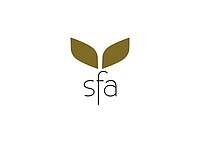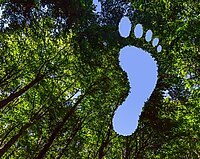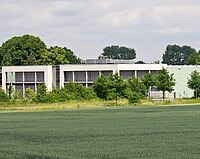Our responsibility
Conservative use of natural resources and corporate responsibility has been the hallmark of our business for more than 60 years!
An essential component of our products is the long top coat of the cashmere goat. We use the hair of highland goats from Inner and Outer Mongolia. The pile material of our tretford Interlife consists of 70% goat hair face fibre and our tretford Interland consists of 80% goat hair face fibre. In fact we include rapidly renewable materials in all our products with at least 40% of our tretford roll and at least 22% of our tretford Interlife made using the rapidly renewable materials. The processed virgin wool we use, the jute we use, and the natural latex we use as an adhesive bed for installing some of our products are all renewable, natural materials.
We hold ourselves to a high standard of environmental awareness in all our business projects. Markus Haick, Managing Director of Weseler Teppich GmbH & Co. KG, has suggested that: "For us as a company, conserving resources and ecological entrepreneurship plays a major role; it’s part of our DNA. Ecological and social responsibility is firmly anchored in our corporate guidelines."

SFA - for sustainable cashmere production
tretford Carpet is a partner of the Sustainable Fibre Alliance (SFA), a globally-focused and locally active initiative. The goal is to sustainably source Cashmere goat hair, a precious raw material, and to commercialize it responsibly.
The SFA works across the entire cashmere supply chain; it connects goat herders with brands and retailers worldwide. Its objective is to promote responsible practices that benefit herders, livestock and the local environment by means of local training programs. The imparted information may help prevent the further desertification of Mongolia and contribute to protecting the local flora and Fauna.

Further steps towards ecological stewardship
tretford is a participant of the EcoProfit report - a project that promotes sustainable business practices in companies. "By taking part in the EcoProfit project, we hope to get even better. The use of natural and recycled raw materials and resource-conserving entrepreneurial behavior plays an ever more important role" explains Markus Haick, Managing Director of Weseler Teppich GmbH & Co. KG. The resources that can be saved not only benefit the climate and the environment but also free up funds. And these funds are used to make important investments to secure the future viability of the company.
In 2021, we installed a photovoltaic system (size 499.8 kWp) on the roof of our warehouse. This allows us to generate part of our electricity consumption ourselves. The expansion of the solar area has been underway since the beginning of 2024. We changed our cardboard packaging in 2019. Since then, we have mainly used packaging made from recycled cardboard or recycled cardboard with grass paper lamination.
In cooperation with the TFI’s Institute for Soil Systems at RWTH Aachen e.V., we are working on reducing our ecological footprint in an ongoing fashion. The project that we are currently pursuing involves intensive research in the area of recycling and biodegradability, as well as research on how best to implement a take-back policy.
Our raw materials (cashmere goat hair and virgin wool) are dyed with commercially available acid-based chemical textile dyes (free of AZO dyes). Customers who want to avoid dyes altogether, can choose between two colors from our collection: 515 (quartz) and 538 (aluminum). Here the processed Cashmere goat hair and virgin wool is left undyed and the natural hair color of the animals really comes into its own.

Our economic and social responsibility
tretford bears economic responsibility towards the owner family, the company employees and their families and our suppliers.
By purchasing the long top hair of Cashmere goats (in addition to the coveted and exclusive soft belly hair, which is used exclusively for clothing), we give farmers another means of subsistence and thus a reliable source of income.
Our carpeting is "made in Germany" at the Wesel production site. High environmental and social standards are in place here.

